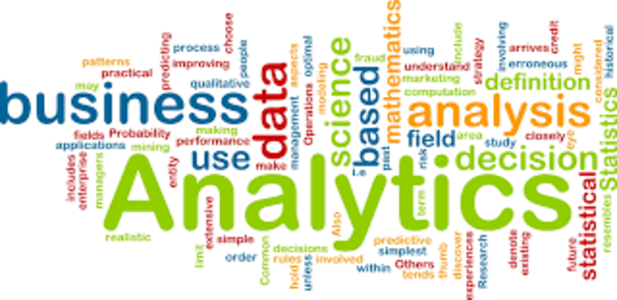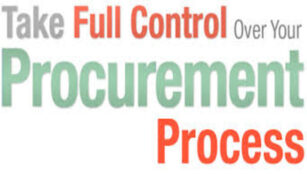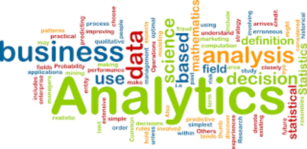Do You Need To Transform Your Procurement Process?

How your business partners and gains buy-in from suppliers will influence not just your overheads, but your CSR policy, Procurement policy and quite possibly even extend to your HR policy too.
There’s a magnitude of variables involved in procurement that to the average business owner, without a professional procurement team (or even just a manager) in place to manage suppliers, things won’t go as smooth as they could do.
What Professional Procurement Entails
· Understanding Value
This goes beyond assigning a monetary value to lock in savings commitments through procurement. Value differs by company and it’s the business owner who ultimately determines what he or she defines as value.
Your company may value supporting SMBs for goods and services supplied, while another may place more importance on the value of green sourcing.
Whatever values your company supports and works hard at upholding as part of your CSR policy, can be supported and further championed by working with suppliers with the same core values.
Values go beyond figures.
· Professionalism throughout procurement
One of the best approaches to ensure professionalism in procurement is to ensure your buyers, whether in-house or outsourced, are invested in continual professional development.
In the UK, you can simply check with The Chartered Institute of Purchasing & Supply (CIPS).
By investing in people who invest in keeping their expertise current, you can be certain that your company will meet or even exceed compliance requirements.
In addition, further areas that will not be neglected is market research, which is essential prior to issuing RFPs (Request for Proposals) to begin the tendering process. Moreover, ethical standards will be included in the analysis of potential suppliers as well as having sound organisational knowledge.
When CPD is part of your HR policy, complimenting your procurement policies, you will find it to be beneficial for improving your entire procurement process.
The fundamentals
Combine…
· The Principles of fairness
· Integrity
· Transparency through competitors
By using the above fundamentals, you will achieve better operational efficiencies, reduce corruption, increase effectiveness throughout your supply chain… all of which brings us right back to the starting point of value – your business will reap the benefits of value for money, and your policy will enhance customer trust, and enable your business to gain a competitive edge.
Plus, you get the data to make further improvements to your procurement process
Data analysis is critical for business development. The longer you’re operational, the more data you will collect and store both in paper format and in digital format.
The majority of the data gathered by procurement professionals must be understood in order to enhance your business processes.
Data analysis can be done whenever you feel the need to, quarterly, bi-quarterly, annually or ad-hoc.
With the magnitude of data at your fingertips,
· Benchmarking can be done
· Supplies and suppliers monitored
· Contracts evaluated
Introducing a transformation process
Chances are, there’s something above that your business hasn’t covered already with your systems and business processes. To implement any of it would involve transforming how you currently manage your suppliers, contracts, tendering process and quite possibly, your entire procurement policy.
The good news is that it’s not too late to make changes, because frankly, to experience efficiencies through procurement, it takes an ongoing approach.
There are plays you can make for the short-term, others will be long-term.
1. Assess your current procurement situation
2. Plan changes strategically (seek advice if you lack the market research or organisational knowledge)
3. Implement the changes you deem necessary
This 3-step approach will need to be done periodically. The more your business matures, the more frequently your procurement team will need to repeat the above three steps to ensure any gaps are identified, addressed and changes implemented for faster improvements.
Image courtesy of biddingo.com.
3 Areas Of Data Analytics You Can Use For Strategic Outsourcing

If you’re not at the stage of bringing in contractors, you better get used to the idea because there will be things that are better managed by other professionals, and there’s other things your business simply requires that you will not have the internal resources to manage in-house.
You need to work with partners.
If not now, then you soon will in the future. Your business will eventually be looking to outsource something or other. It could be as simple as a uniform cleaning service or it could be your entire janitorial services.
Whatever it is you need to bring in outside help for, the key ingredient you need to get your outsourcing right is analytics.
Now…the larger your company is, the more data you will have. When you’re working at enterprise level – managing multiple sites – you will essentially need big data analytics and staff on hand to manage your data, analyse it and scrutinise it for efficiencies across your entire operation.
If you don’t have the procurement specialists aboard your organisation, then an option open to you is to outsource your outsourcing for which you’ll need a procurement specialist to assist you with data optimisation for savings realisations.
What you’re looking for in your analytics to improve outsourcing efficiencies
Three things…
1) Spend
2) Contracts
3) Suppliers
Those are the three areas of your company’s data that you need to have access to, to manage your outsourcing efficiently.
· Spending
This will need periodically reviewed. Many firms have pricing policies in place for which annual price increases form part of the contractual process. Opposite from what you might expect, the longer you deal with the same supplier, the costs aren’t always the best you can get.
This is true for domestic contracts as much as it is for the commercial sector. It’s often better to switch suppliers but in doing so, you can’t neglect the quality of service being provided. Over time, depending on your in-house quality requirements, you may be better placed sticking with a premium service provider if it means you’re guaranteed consistent quality because your supplier will know your business better.
Take for example a five-star hotel or a Michelin starred restaurant. Getting the linen washed (be it bedding or gleaming white table covers) may be a basic service for some cleaning suppliers, but to maintain your standards, your current supplier may be investing in top of the range equipment to ensure your whites are whiter than white, enabling you to maintain the highest of quality standards for your end-users.
That being said, you still need to be reviewing contracts. That’s why that’s listed second on the list of areas to monitor.
Your contracts should always have a start and end date. As you approach your end date and your contract nears renewal, it’s not just a case of deciding whether to stay or switch. It’s a chance to get back to the table and renegotiate everything within the contract.
Without reviewing contracts periodically, any bottlenecks that your data show you to be happening, won’t be eliminated.
Use your contract renewals to ensure your suppliers are on the same page as you so they can provide you a top-notch level of service. They can’t do that if you don’t tell them what you need them to do to take care of your customers.
One idea you can and should be doing is surveying your customers to ensure that any problems are identified and brought to the attention of your suppliers so they can be rectified. Every supplier you bring aboard your operation will affect your customers at some point. That’s why these contract renegotiations are super important. It’s your chance to maintain and even enhance your customer’s user-experience.
The last piece of actionable advice for strategic outsourcing using your data analytics is to monitor your suppliers.
Where possible, consolidation is best.
The fewer suppliers you have, the less administration you have, and the more efficient your business will operate.
· Minimise suppliers
· Review contracts periodically
· Monitor your expenditure
Those are the three areas to use your analytics for when you’re outsourcing. The more efficiently you can manage those three aspects of your outsourcing, the better quality of service your suppliers should be able to deliver to your business, with continually bettered contractual agreements, terms of service, service level agreements and sometimes pricing (but not always depending on what you need).
Using your data smartly is the best way to improve efficiencies and drive cost savings across your business.
Image courtesy of data-analytics.github.io.







